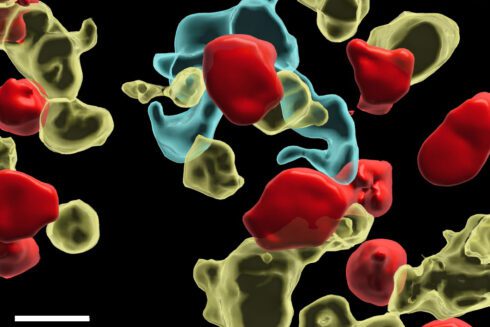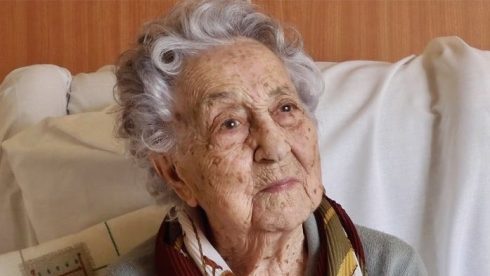SPANISH scientists have found a remarkably simple treatment for cancer- aspirin.
Young Spanish scientists have discovered a revolutionary treatment to complete immunotherapy in the fight against cancer.
Malagan scientist and daughter of Belgian expats Anais Elewaut, 29 made the discovery through animal experiments.

She works alongside Barcelona native Guillem Estivill, 28.
They have found some anti-inflammatory medicine like aspirin could help with treatment.
“Rats that received immunotherapy and anti-inflammatory medicine lived much longer and some were even 100% recovered,” said Estivill.
The two Spaniards work in the Research Institute of Molecular Pathology in Vienna, Austria and have had their work in the journal Nature.
Cancer is formed when human cells themselves multiply uncontrollably and is characterised by its ability to evade the immune system, which often does not recognise it as a threat.
White blood cells, the human defence system, are formed inside the bones but some types travel to the thymus – a small gland in the chest – to mature into cytotoxic T-lymphocytes, capable of destroying cells infected by viruses or bacteria.
The Vienna team has identified a crucial player in the activation of these killer T cells that has previously gone unnoticed: monocytes, another type of white blood cell formed in bone marrow.
New research shows the monocytes travel through the blood and can capture fragments of cancer cells and show them to T cells, which then reactivate and attack the tumour.
The study also sheds light on cancer’s ability to evade attacks.
Tumour cells increase the production of prostaglandin E2, a lipid substance that blocks the action of monocytes.
At the same time, they decrease the production of interferons, proteins that stimulate the immune system.
The research found that cyclooxygenase-inhibiting anti-inflammatory drugs, such as aspirin, are ‘a promising strategy’ to increase the effectiveness of immunotherapy by blocking the production of inflammatory molecules, such as prostaglandin E2.

Estivil is optimistic, taking into account previous human trials: “We’ve done a meta analysis and we have seen that immunotherapy patients who also take anti inflammatory medication, not just aspirin but any that inhibits cyclooxygenase like ibuprofen have better results.”
While the short term benefits are good, tumors often reappear, so the team is now experimenting with different combinations to get best results.
So far, their experiments are promising.
Anais Elewaut, a biotechnologist from Malaga whose parents are Belgian, explains that the levels of prostaglandin E2 are extremely high in tumours.
“I think that to inhibit this process and make immunotherapy work better, you need a lot of aspirin and a lot of ibuprofen, and the problem is that these drugs also have a lot of side effects: stomach problems, cardiovascular problems, and so on. So we have to try to combine aspirin, immunotherapy and probably other drugs,” says Elewaut. “People should not think that aspirin alone will cure cancer,” she stresses.
The leader of the Austrian lab, Anna Obenauf, confirms that ‘aspirin is one of several possibilities’, but there are similar drugs that are more potent and specific, such as celecoxib, used to relieve arthritis pain and inflammation.
“There are already clinical trials underway with several of these drugs. I suspect they will show some effect, but in our study we demonstrate how to enhance that effect with additional combination therapies,” Obenauf argues.
Biologist Marisol Soengas, president of the Spanish Association for Cancer Research, applauds the new study.
“The study is very rigorous and very complete, because it uses very diverse cellular models and also different models of genetically modified animals,” she says.
Soengas is head of the Melanoma Group at the Centro Nacional de Investigaciones Oncológicas in Madrid.
In her opinion, we still have to remain cautious, while waiting to see the results of the combination of anti-inflammatory drugs with the most common immunotherapies, such as the so-called immune checkpoint inhibitors.









